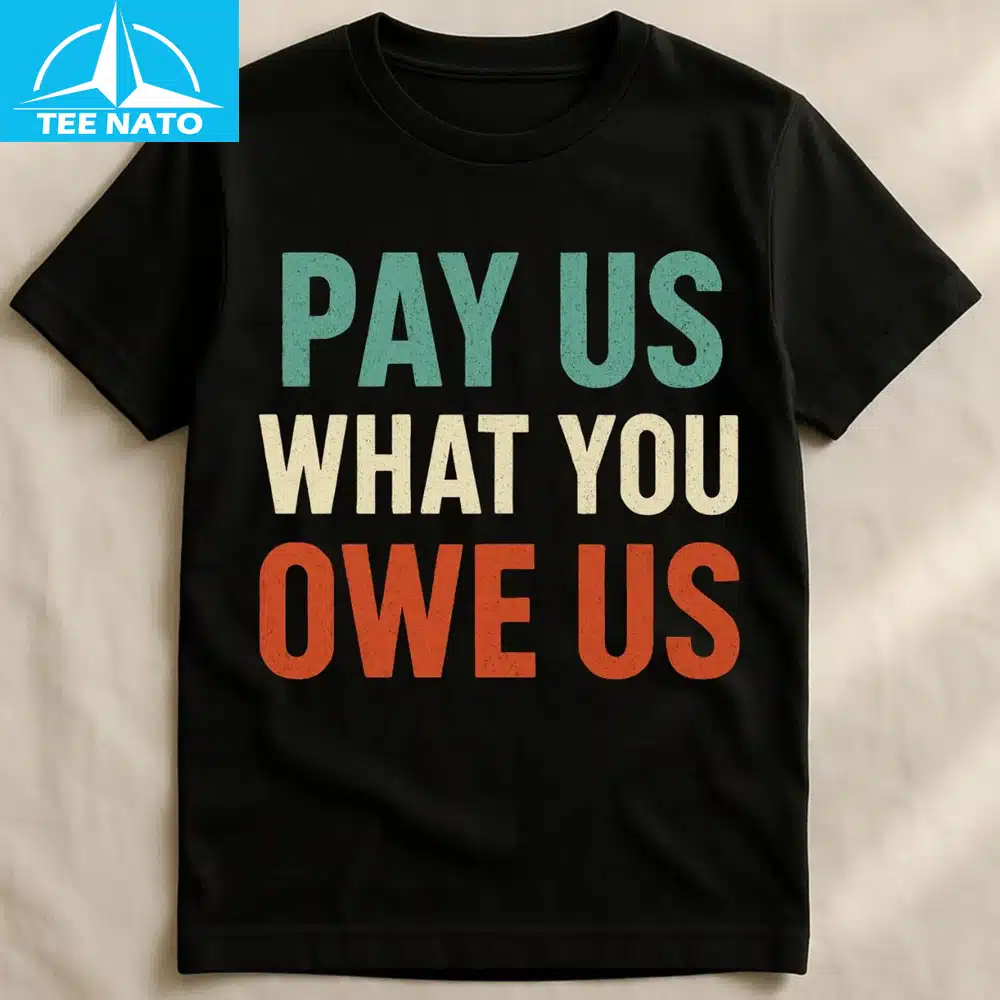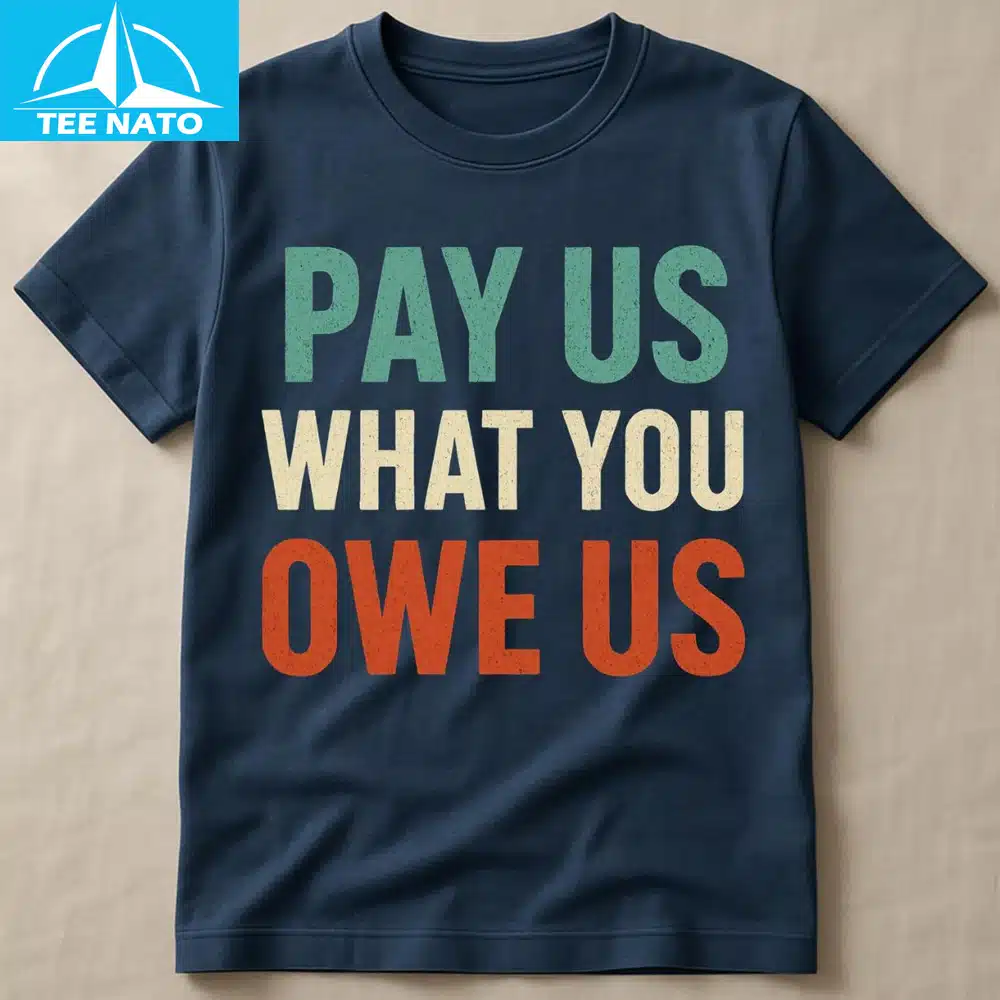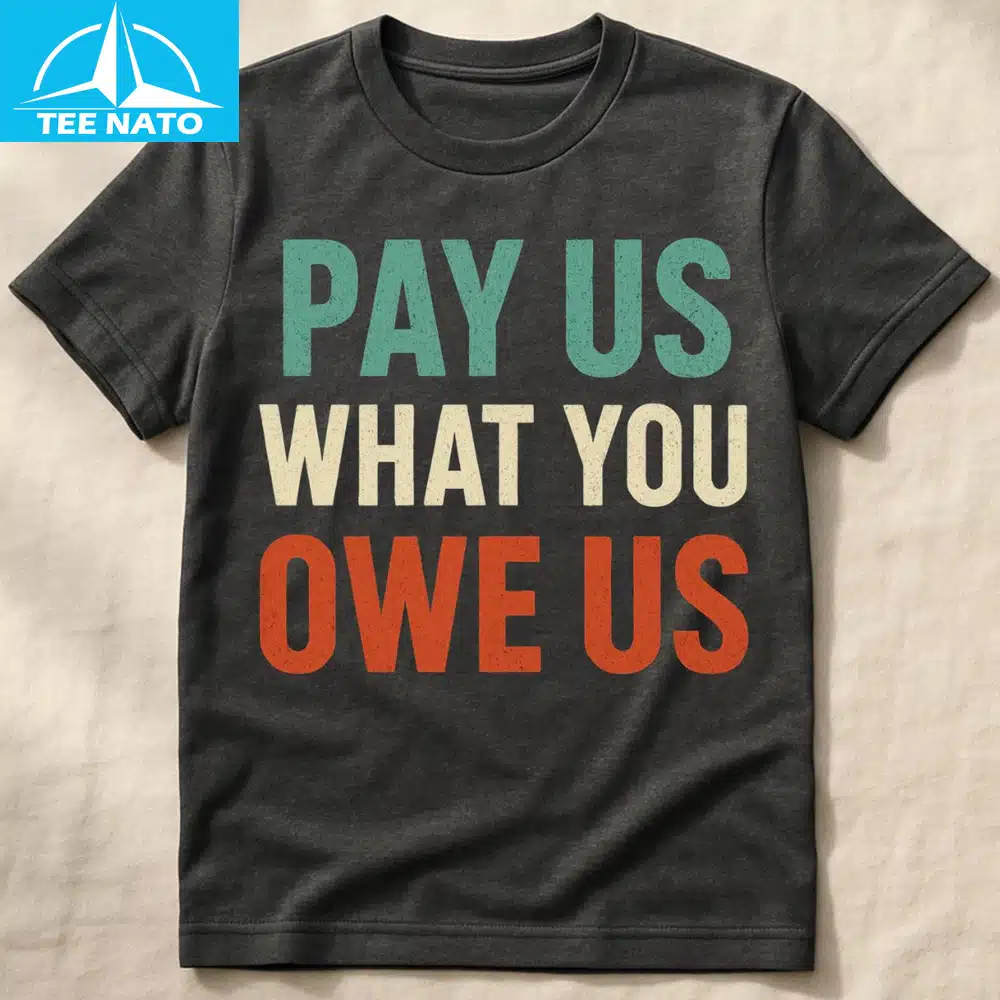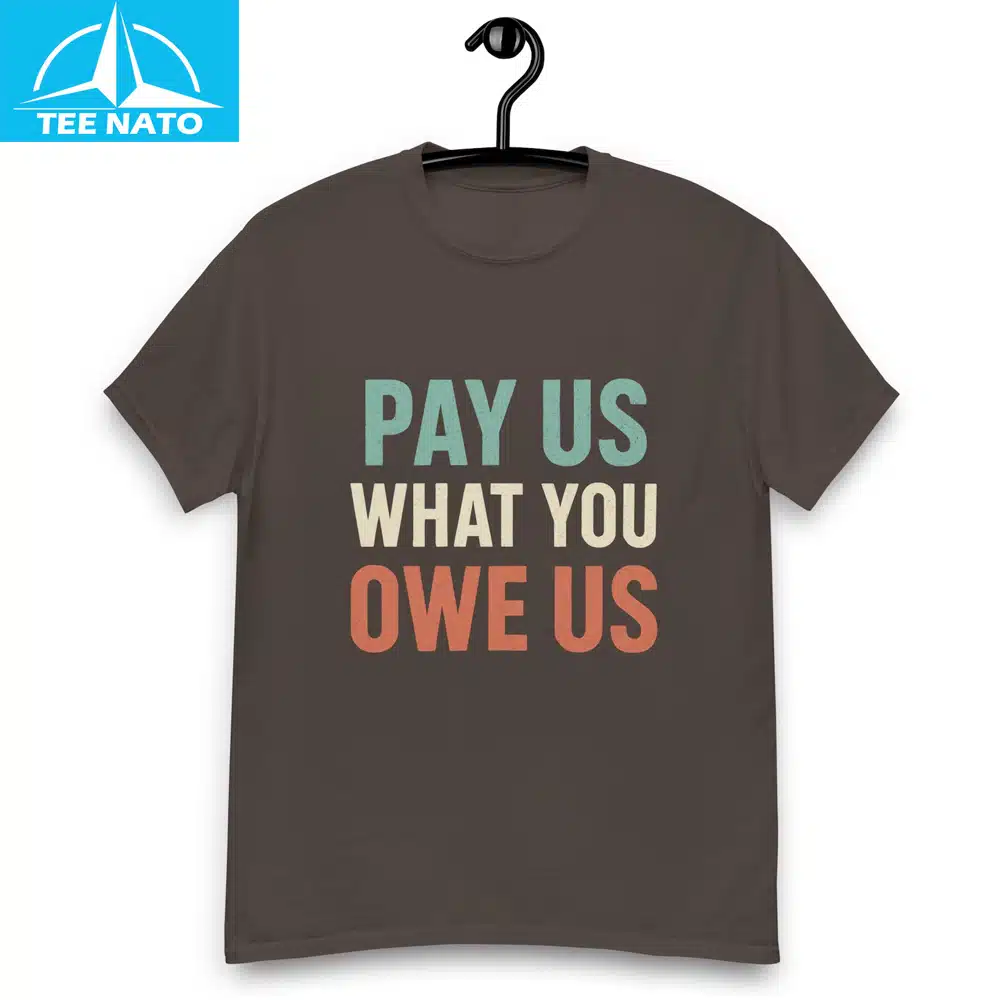Make a Stand: The ‘Pay Us What You Owe Us’ Shirt as a Statement of Rights
The Pay Us What You Owe Us Bold Statement Shirt transcends being mere clothing—it’s a declaration demanding fairness and integrity. Whether your cause is wage justice, unsettled debts, or broader social equality, this shirt gives your voice power.
Here is how you can use it to make a difference:
This bold piece of apparel is not simply a fashion choice—it’s a form of active protest. In a world where economic inequality is on the rise, wearing this shirt sends a potent message: accountability is essential.
![]()
Historically, clothing has been a potent vehicle for expressing dissent. From the sashes of suffragettes to Black Lives Matter shirts, what we wear can communicate volumes.
The Pay Us What You Owe Us Bold Statement Shirt carries on this tradition. It converts passive discontent into an active claim. Unlike more general slogans, this phrase is a direct challenge to systemic unfairness.
When seen in public, it forces onlookers to acknowledge uncomfortable truths about financial exploitation and unpaid labor.
Many individuals—especially those in the gig economy—suffer from unpaid wages with few avenues for justice. This shirt offers them a form of visibility.
![]()
For freelancers, rideshare drivers, or unpaid interns, it serves as a form of armor against being silenced. It communicates the message, “My effort has value.”
Studies have shown that visual protests can raise public awareness by 40% more than online petitions can alone. A statement shirt connects digital activism with physical presence.
In contrast to generic “Equality” t-shirts, this design clearly identifies the issue—unsettled debts.
Where other slogans make a polite request (like “Please Be Kind”), this one issues a command (“Pay Us”). That critical change from request to demand alters how the message is received.
Creating a statement involves strategy. Here are tips to maximize the shirt’s impact.

A minimalist look helps ensure the message is not lost in the noise.
You should avoid excessively flashy pieces that might detract from the shirt’s core purpose.
Not all situations are right for such a direct and confrontational message.
Protests, union functions, or debt-related strikes are ideal. Job interviews? Probably not—unless, of course, you’re negotiating for back pay!
The context is key. Wearing this to a corporate shareholder event could spark dialogue; at a casual get-together, it might seem jarring.
Posting a picture of you wearing the shirt accompanied by a personal story about wage theft can make the issue more relatable.
For instance, a caption could read: *”This is about more than just me; it’s about months of unpaid work.”*
Platforms like Instagram and Twitter can greatly expand your reach. Tagging relevant advocacy groups (@FightFor15, @ACLU) helps draw more eyes to the cause.
The data speaks for itself. Wage theft is a massive problem affecting millions each year.
| Statistic Category | Data Point |
|---|---|
| Yearly unpaid wages in the U.S. | $15 billion |
| Affected American workers | 3 million or more |
| Rate of success for wage claims | Only 12% |
A restaurant employee named Maria wore the shirt to her manager’s office after her tips were unjustly denied.
A photo of her stand went viral online, eventually leading to her receiving a settlement.
Cases like this prove that apparel can be a genuine catalyst for tangible change.

Businesses are wary of bad press. When employees unite and wear this shirt, it can be more impactful than a formal lawsuit.
Giants like Amazon and Walmart have contended with protests using similar clothing, which has pressured them to address wage claims more promptly.
While laws are in place, their enforcement is often weak. The shirt works around the bureaucracy by leveraging social pressure.
It acts as a reminder that achieving justice shouldn’t have to rely on systems that are fundamentally broken.
The Pay Us What You Owe Us Bold Statement Shirt merges fashion and social action in a seamless way. It’s a medium for the unheard, a symbol for the exploited, and a defiant statement against power imbalances.
Wear it with purpose, share your narrative, and demand what you are rightfully owed—because passivity has never resolved injustice.
POSTER SEO_SIBATOOL